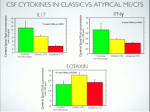aimossy
Senior Member
- Messages
- 1,106
The article is about ME/CFS, Dr Mark Davis, Dr Jose Montoya and Dr Lipkin among others.
http://stanmed.stanford.edu/2014fall/immune-system-disruption.html
http://stanmed.stanford.edu/2014fall/immune-system-disruption.html
Last edited:

